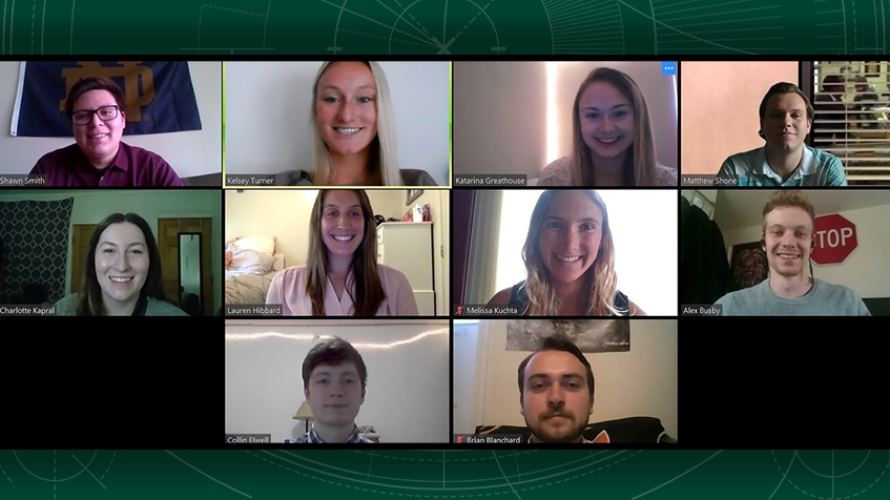
Chemical engineering students top their task at virtual environmental design contest

April 27, 2020
Author: Colleen Carow
Bringing home first place took on new meaning this month for an Ohio University chemical engineering student competition team. For more than 20 years, Russ College students have traveled to Las Cruces, New Mexico, to compete in the WERC Environmental Design Contest at New Mexico State University. After collaborating on campus all year, this year's teams suddenly had to compete virtually – and one of them earned a win.
The annual competition asks students to address six real-world environmental challenges called tasks. Students first submit a research essay, then make an oral presentation and demonstrate their work at the event. OHIO’s “Task 4” student team won the first place, a $2,500 award, repeating last year's student team victory.
“Although the students were disappointed not to be able to travel to New Mexico and present in person, they really followed through on their commitment with a quality design and presentation,” said Valerie Young, chair of the Department of Chemical and Biomolecular Engineering. “I think the key to success was their consistent progress throughout fall and early spring because they were able to test their ideas on the bench scale and collect convincing data before spring break.”
Two 10-member teams prepared all year long to compete in Task 5, “Produced Water: Rare-Earth Element Recovery and Clean Water Production," and the winning challenge: Task 4, “Fluoride Water Treatment and Recovery."
Task 5 asked students to clean the elements europium, lanthanum and neodymium from water to make it suitable for farm use, ultimately producing elements for use in the electronics industry.
Meanwhile, Task 4 required removing high levels of fluoride, which can be detrimental to aquatic life, from streams near mining operations.
“We had an innovative design that used a waste product, steel slag, from another industry to remove the fluoride,” said Charlotte Kapral, a graduating senior and president of the student chapter of the American Institute of Chemical Engineers. “The team worked hard researching solutions, testing our proposed design in the lab, writing our paper, formatting and refining the paper, and presenting the paper and bench-scale design to the judges.”
Matthew Shone, also a senior, said the research was rewarding for the team as well as the community – and that the judges were so impressed with the design, they recommended the team’s paper for publication.
“This was one of the best learning experiences any student could have as an undergraduate. We were able to deliver a promising solution that uses a waste product from a manufacturing process,” Shone said. “Having the competition move to a virtual format was definitely a challenge, but our team was able to quickly overcome that due to the amount of experimental data we had collected before the pandemic.”
In addition to Kapral and Shone, the team comprised members Brian Blanchard, Alex Busby, Collin Elwell, Katarina Greathouse, Lauren Hibbard, Melissa Kuchta, Shawn Smith and Kelsey Turner.
“The students did an excellent job. Their solution was well received by the judges,” said adviser and Associate Professor of Chemical and Biomolecular Engineering Darin Ridgway, who is also assistant chair for undergraduate studies. “I was very proud of how both teams got through the disappointment of not getting to take the trip in person and worked very hard to finish the task.”
The teams were supported by last year’s prize winnings of $2,500, Russ Vision funds – and the many OHIO alumni and friends who donated to the Chemical and Biomolecular Engineering Student Activities Fund, including $6,000 received in response to the students’ crowdfunding campaign and video. Make a gift to support next year’s team.
